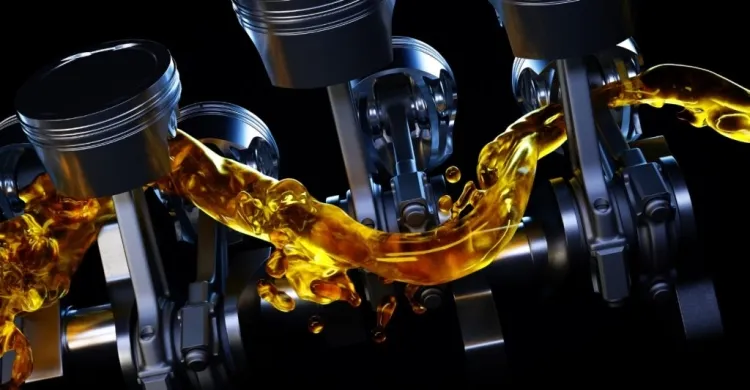Engine Oil: The Lifeblood of Internal Combustion Engines...!!!
Engine oil is vital for the smooth operation and longevity of an internal combustion engine. Its roles in lubrication, cooling, cleaning, protection, and sealing are indispensable for maintaining engine health.

Engine oil, often referred to as motor oil, is essential for the efficient operation of an internal combustion engine. This lubricant minimizes friction and wear among the engine's moving parts, ensuring smooth functionality and extending the engine’s lifespan. Additionally, engine oil is pivotal in cooling, cleaning, and safeguarding the engine. Let's delve into a comprehensive overview of engine oil, examining its functions, types, and maintenance.
Functions of Engine Oil
-
Lubrication: The core role of engine oil is to lubricate the engine's moving parts, such as pistons, the crankshaft, and the camshaft. This lubrication lessens friction and prevents metal-on-metal contact, thereby reducing wear on engine components.
-
Cooling: During engine operation, significant heat is generated. Engine oil helps in dissipating this heat by absorbing and transferring it away from the engine parts, thus preventing overheating and maintaining optimal operating temperature.
-
Cleaning: Engine oil comprises detergents and dispersants that aid in cleaning the engine by capturing and suspending contaminants like dirt, debris, and combustion by-products. These contaminants are carried to the oil filter, which removes them from the oil before it recirculates through the engine.
-
Protection: Engine oil forms a protective layer on the engine's internal surfaces, shielding them from corrosion and rust. This is crucial for preventing damage caused by moisture and acidic combustion by-products.
-
Sealing: Engine oil helps seal the gaps between piston rings and cylinder walls, ensuring efficient combustion and preventing power loss. This sealing capability also contributes to reducing emissions.
Types of Engine Oil
Engine oils are generally categorized into three types: conventional, synthetic, and semi-synthetic.
-
Conventional Engine Oil: Derived from crude oil through a refining process, this basic type of engine oil is suitable for older engines and vehicles with simple engine designs. While it is less expensive, it may require more frequent changes due to its limited ability to endure extreme conditions.
-
Synthetic Engine Oil: Engineered through a complex chemical process, synthetic oil offers superior performance and protection. It provides better lubrication, higher resistance to temperatures, and a longer service life compared to conventional oil. It is ideal for high-performance and modern engines but comes at a higher cost.
-
Semi-Synthetic Engine Oil: Also known as synthetic blend, semi-synthetic oil is a mix of conventional and synthetic oils. It balances performance and cost, offering better protection and longevity than conventional oil at a lower price than full synthetic oil. It is suitable for a variety of vehicles and driving conditions.
Engine Oil Maintenance
Maintaining engine oil properly is crucial for the health and performance of an engine. Consider the following key aspects:
-
Oil Change Intervals: Regular oil changes are essential to ensure efficient engine operation and to prevent contaminant build-up. The recommended interval for oil changes varies based on the type of oil, the vehicle manufacturer's guidelines, and driving conditions. Typically, conventional oil should be changed every 3,000 to 5,000 miles, while synthetic oil can last between 7,500 and 10,000 miles.
-
Oil Level Check: Regularly checking the oil level is important to ensure there is enough oil in the engine. Low oil levels can increase friction and potentially damage the engine. Use the dipstick to check the oil level and top up if necessary.
-
Oil Filter Replacement: The oil filter is crucial for removing contaminants from engine oil. It should be replaced during each oil change to maintain the oil's cleanliness and effectiveness.
-
Oil Quality: Using the correct type and grade of oil, as specified by the vehicle manufacturer, is important for optimal engine performance. Modern engines require oils with specific additives and viscosities to meet design requirements.

In summary, engine oil is vital for the smooth operation and longevity of an internal combustion engine. Its roles in lubrication, cooling, cleaning, protection, and sealing are indispensable for maintaining engine health. Understanding the different types of engine oil and adhering to proper maintenance practices will help keep your engine running efficiently and reliably.
What's Your Reaction?

















